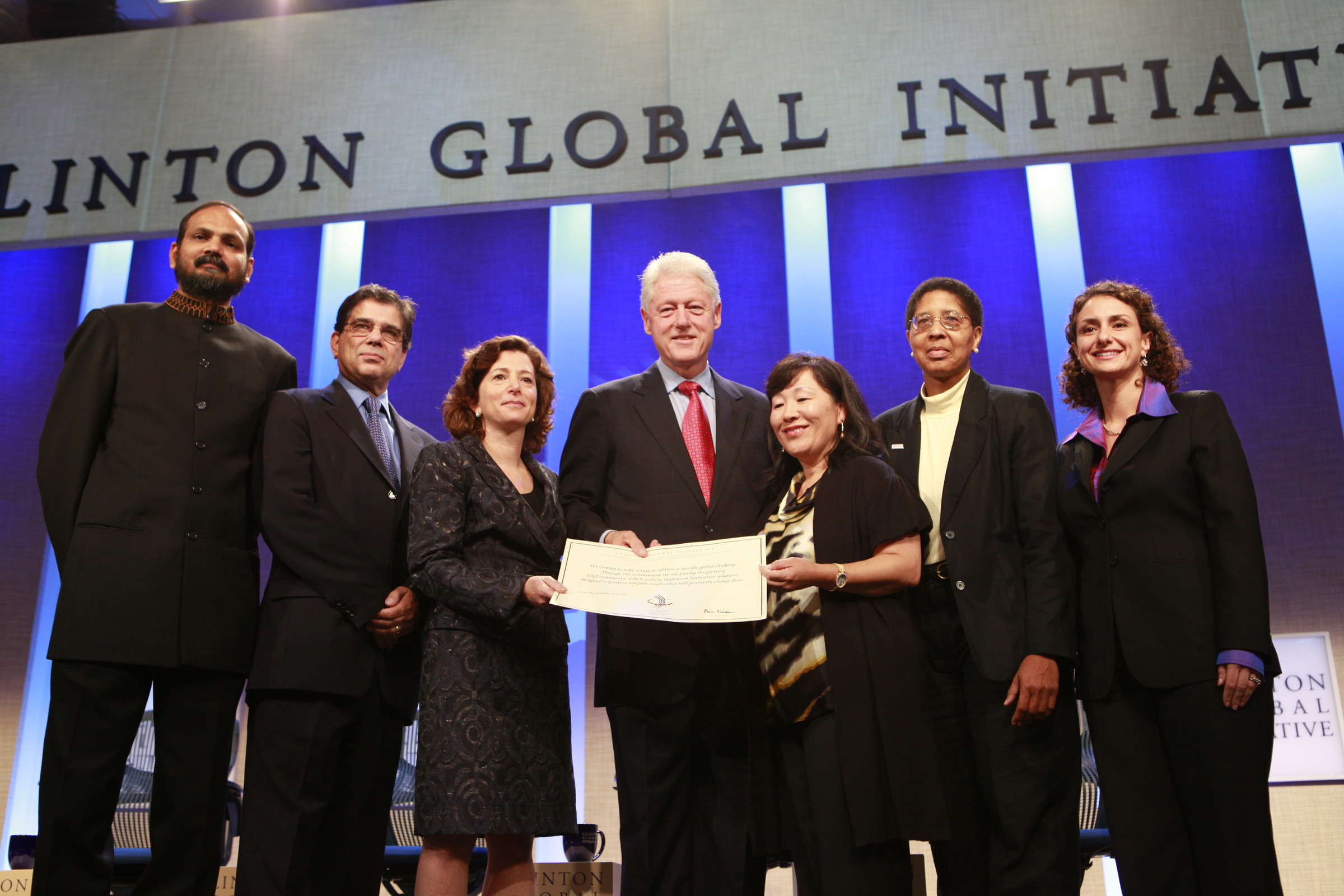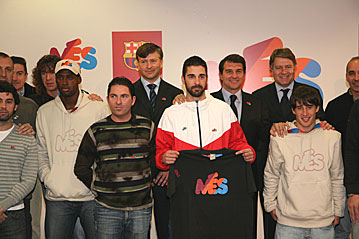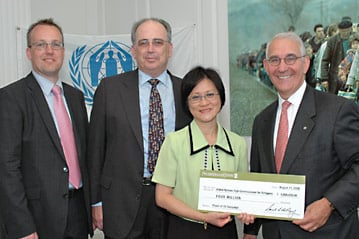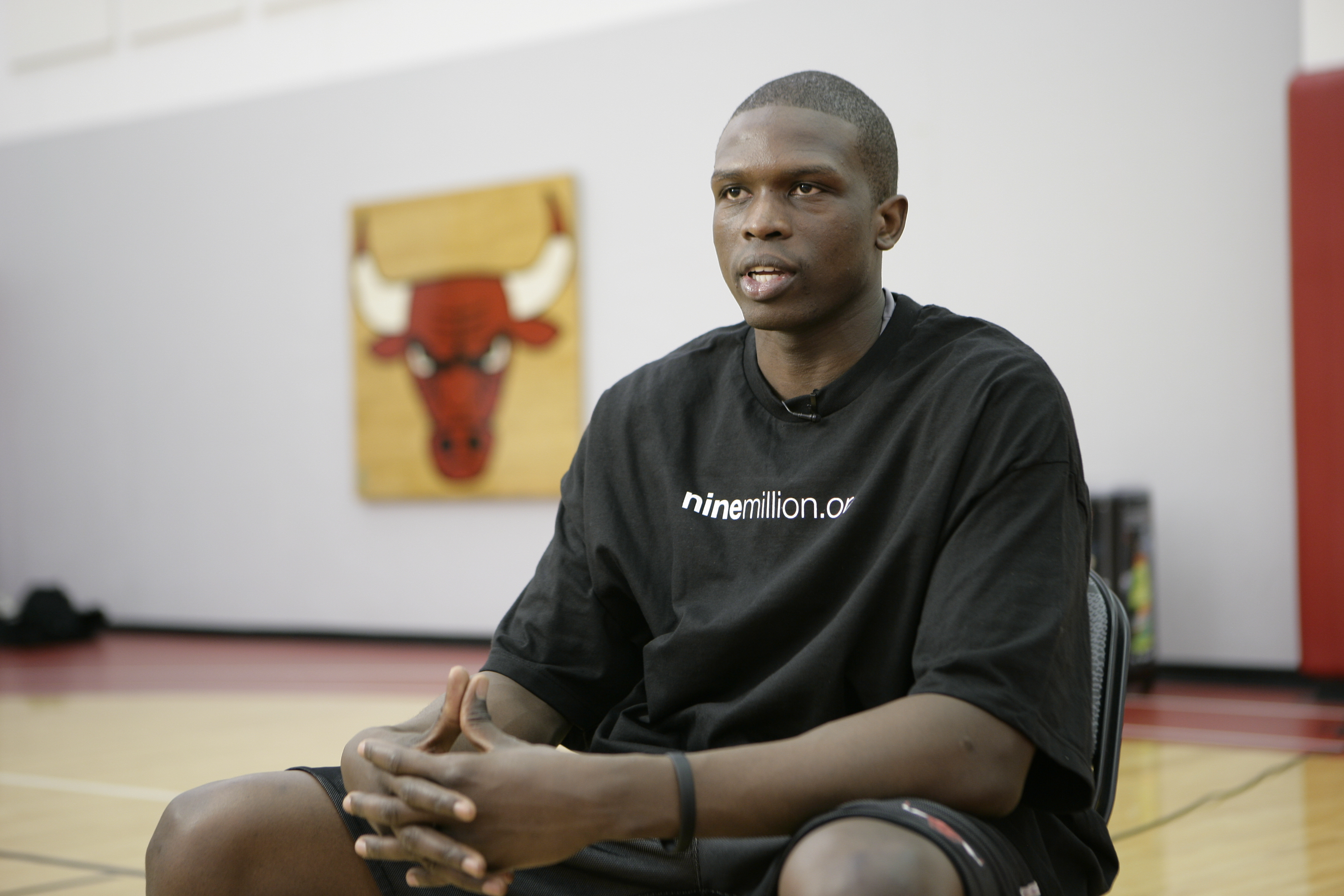Clinton Global Initiative: Iraqi teen trades IT for ironing
Clinton Global Initiative: Iraqi teen trades IT for ironing
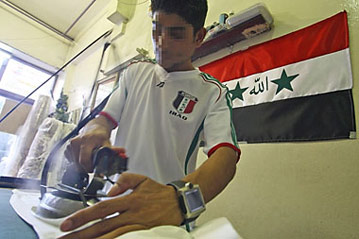
DAMASCUS, Syria, September 18 (UNHCR) - A passion for learning shines out of 17-year-old Karim's* intelligent eyes. "I feel I have to know everything," says the tall teenager, dressed in an Iraq national team football jersey. "If I don't, it's very hard for me."
He's pursued his education against all odds. After braving daily bombings and shootings in Baghdad to get to class, he had to drop out of 11th grade when his family fled to the Syrian capital Damascus. Here he enrolled in school, but had to leave when he failed to produce the required residency permit.
In an amazing show of bravery and education, he then returned to Baghdad on his own to take his exams and complete 11th grade. But now it seems that may be as far as he can go.
These days, rather than following his dream of becoming a computer engineer, he's the sole support for 13 members of his extended family, slaving over an ironing board in a laundry for 14 hours a day. Working seven days a week, he brings home the equivalent of US$3 a day.
His is typical of the dilemma faced by so many teenage Iraqi refugees in Syria; while they would love to continue their education, they are often the only members of the family able to find a job and bring in at least a meagre income.
"Education is my first priority, because I love studying," he says. At the same time he says he has no choice but to work because "I have to support my family." He evinces no resentment at being thrust into premature responsibilities, but does miss the camaraderie of school life as well as the sheer joy of learning.
Even patching together a self-education is beyond him at this point. "I really want to study and to read on my own, but I can't find the time," Karim says. "I go to my work and I come back home [after midnight] exhausted."
Though he doesn't dwell on it, Karim's thoughts often turn to the personal computer he had at home in Baghdad - in the 800-square-metre (8,360-square-foot) house his large family shared. It's a staggering contrast with the one room they all live in now, with one tiny bathroom for 13 people, where they have cut the toilet tissue roll in half as an economy measure.
Karim gives no hint of despair, but he's clearly afraid of what will happen if he cannot continue his education. "I would see the future just the same as we are living now," he says bleakly.
UNHCR's internet-based campaign, ninemillion, aims to help people like Karim get access to education and sports. Ninemillion will be promoted at the September 26-28 meeting of the Clinton Global Initiative (CGI) in New York.
The UN refugee agency and its corporate backers will use the forum to issue a call to raise US$220 million for refugee education, with a goal of enhancing education for nine million refugee children by 2010.
* Name changed for protection reasons


